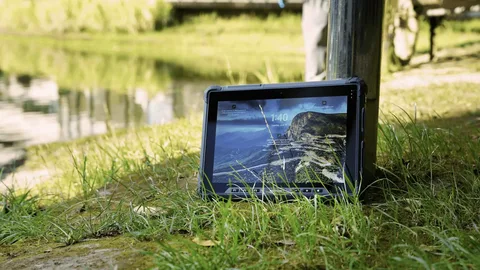Field work often involves exposure to unpredictable environments, rough handling, and extreme weather conditions. In such scenarios, traditional consumer-grade tablets fall short in performance and durability. Rugged tablets have emerged as an essential tool for professionals who require reliable, high-performance computing solutions outside traditional office settings. These devices are engineered specifically to withstand harsh operating conditions, making them indispensable across industries like logistics, construction, manufacturing, and emergency services.
One of the most notable aspects of rugged tablets is their ability to maintain consistent performance in demanding environments. These devices are designed to resist shocks, drops, dust, moisture, and temperature fluctuations. For technicians and workers who need real-time data access and processing power on-site, a Rugged Tablet For Field Work offers the durability and efficiency required to keep operations running smoothly without the risk of frequent equipment failure.
Durability and Environmental Resistance
Rugged tablets typically meet or exceed MIL-STD-810H military standards for durability. This ensures they can survive multiple drops from significant heights, vibrations during transportation, and exposure to extreme weather. Many also carry IP65 or higher ratings for dust and water resistance, making them suitable for use in environments ranging from desert conditions to heavy rain. This level of protection allows field personnel to use the device without worry, even in the most challenging outdoor settings.
Sunlight-Readable and Glove-Compatible Screens
For field professionals, being able to view and interact with the screen outdoors is critical. Rugged tablets often feature sunlight-readable displays with high brightness levels (typically above 800 nits) and anti-reflective coatings. Additionally, touchscreens are often glove-compatible, allowing users to operate the device without removing protective gear. This feature is especially important for emergency responders, construction workers, and healthcare professionals who work in environments where safety and hygiene are priorities.
Long Battery Life and Hot-Swappable Batteries
In field work, access to charging stations can be limited. Rugged tablets usually come with long-lasting batteries that can run for a full shift or more on a single charge. Some models also offer hot-swappable battery features, enabling users to replace the battery without shutting down the device. This functionality significantly reduces downtime and supports continuous operation during extended assignments.
Integrated Data Capture and Communication Tools
Field workers often need more than just a tablet—they require a mobile workstation. Rugged tablets are equipped with a variety of integrated tools such as barcode scanners, RFID readers, GPS modules, and cameras. These built-in components streamline data collection and enhance accuracy on the job. Advanced communication options, including 4G LTE, Wi-Fi, and Bluetooth, ensure that field teams remain connected to central systems and can transmit or receive data in real time.
Customizable and Modular Design
Industries have unique requirements, and rugged tablets can often be customized to meet those specific needs. Whether it’s adding expansion ports, vehicle mounts, or external antennas, these devices offer modularity that adapts to various operational demands. For example, utilities companies might prioritize GPS accuracy, while warehouse environments might require enhanced scanning capabilities.
Security and Manageability
Rugged tablets used in field operations often carry sensitive or mission-critical data. That’s why many models come with robust security features such as biometric authentication, TPM (Trusted Platform Module) chips, and full-disk encryption. Additionally, device management tools enable IT administrators to remotely configure, update, or wipe devices as needed—important for companies with a distributed workforce.
Security Features
As embedded systems increasingly connect to networks and cloud platforms, cybersecurity becomes a critical concern. Modern embedded computers should support hardware-level security such as TPM (Trusted Platform Module), secure boot, and encryption features. Additionally, regular firmware updates and patches are essential to address evolving security threats.
Your manufacturer should demonstrate a clear commitment to device security, including secure production processes, supply chain integrity, and vulnerability management practices.
Power Supply and Energy Efficiency
Power supply units (PSUs) in 4U rack mount computers should offer high efficiency (preferably 80 PLUS Gold or higher) to reduce heat output and power costs. Many models also feature redundant PSUs, which maintain system operation even if one power source fails. This is particularly important in applications where downtime can result in significant financial or operational losses.
Conclusion
The functionality and reliability of rugged tablets make them essential for any industry requiring remote or on-the-go operations. From their high durability and environmental resistance to advanced features like hot-swappable batteries and real-time communication tools, rugged tablets offer a specialized solution for demanding field conditions. Investing in the right rugged tablet can significantly improve efficiency, reduce equipment downtime, and ensure worker safety in even the toughest environments.
The functionality and reliability of rugged tablets make them essential for any industry requiring remote or on-the-go operations. From their high durability and environmental resistance to advanced features like hot-swappable batteries and real-time communication tools, rugged tablets offer a specialized solution for demanding field conditions. Investing in the right rugged tablet can significantly improve efficiency, reduce equipment downtime, and ensure worker safety in even the toughest environments.
